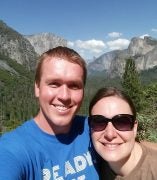
Karl Kuehner
Graduate Student
History
Contact
Building & Room:
UH 1014
Address:
601 S Morgan St.
Email:
Office Hours
| Sunday | ||
|---|---|---|
| Monday | ||
| Tuesday | ||
| Wednesday | 12:00pm – 01:00pm | |
| Thursday | ||
| Friday | 12:00pm – 01:00pm | |
| Saturday |
About
Karl Kuehner is a PhD Candidate in modern American religious history. He earned a BA in history and education from Concordia University Chicago, and a MA in history from the University of Chicago. Karl taught history at the middle and high school levels in and around Chicago for ten years prior to entering the PhD program at UIC in the fall of 2018. His research explores the intersection of religion and capitalism in the 20th century and is being directed by Kevin Schultz and Robert Johnston. He currently lives west of the city in Berkeley with his wife and three rambunctious boys.
Notable Honors
2022, History of Capitalism Summer Camp Fellowship, Cornell University
2022, Summer Research Grant, University of Illinois at Chicago
2022, “The Archive” Fellowship, Newberry Library, Chicago
2018-2022, History Doctoral Award, University of Illinois at Chicago
2013-2017, MAPSS Sscholarship, University of Chicago
2005, Inducted into Phi Alpha Theta, Concordia University Chicago
2002-2007, Presidential Scholarship, Concordia University Chicago
Education
Concordia University Chicago: B.A. – Secondary Education, History (2007)
The University of Chicago: M.A. – History (2017)
Courses Taught:
As Adjunct Professor:
“History of the United States from 1986 to the Present”
“History of the American People: From Colonization to the Present”
“English Composition”
As Teaching Assistant:
“History of Capitalism in America” (Fall ’18)
“Modern America: From Industrialization to Globalization” (Spring ’19)
“Rise of the West” (Fall ’19)
“Modern America: From Industrialization to Globalization” (Spring ’20)
“Western Civilization Since 1648” (Fall ’20)
“Western Civilization to 1648” (Spring ’21)
“The Middle East to 1258” (Fall, ’21)
“Native American History” (Spring ’22)
“Western Civilization Since 1648” (Summer ’22)
“The World System Since 1400” (Fall ’22)
“The Russian Revolution” (Spring ’23)
Selected Presentations
“Salvage the Surplus: Paul Rader’s Pantry, Christian Fundamentalism, and the Great Depression.” Paper presented at the American Society of Church History annual meeting (January 2023)
“’Aunt Tom’: Phyllis Schlafly and the Case Against the ERA” Paper presented at Loyola University History Graduate Student Association Conference, November, 2018.
“Modern Warriors: Jerry Falwell, The New Christian Right, and the Experience of Modernity” Paper presented at the Religions in American Workshop, University of Chicago Divinity School, September 2017
Research Currently in Progress
My research revolves around a central conceptual problem: how to articulate religion’s evolving relationship with and within modernity in twentieth-century America. This theme has led me down two particular paths of historical and theoretical inquiry. The first is the emergence of the New Christian Right as a potent force in American politics during the 1970s. My work explores how members of the NCR and their allies lived, as Marshall Berman puts it, “the experience of modernity,” grappled with the broader secularizing currents in American culture, and how they built organizations and rhetorics to resist those transformations. Through this process, the NCR reshaped the landscape of American conservatism and American religion. My other area of academic interest is the relationship between capitalism and Christianity during the Great Depression. In particular, my work seeks to understand how the most significant crisis in the history of modern capitalism shaped Christians attitudes and action with regard to economic order that not only structures nearly every aspect of life, but also raises distinct moral and spiritual questions. My dissertation is a study of religious communities in Depression-era Chicago. I explore how religious Chicagoans experienced and made sense of economic collapse, as well as their efforts to relieve material suffering.
Exam Fields:
Colonial and Modern United States (major)
Religion in North America (minor)
Europe Since 1789 (minor)